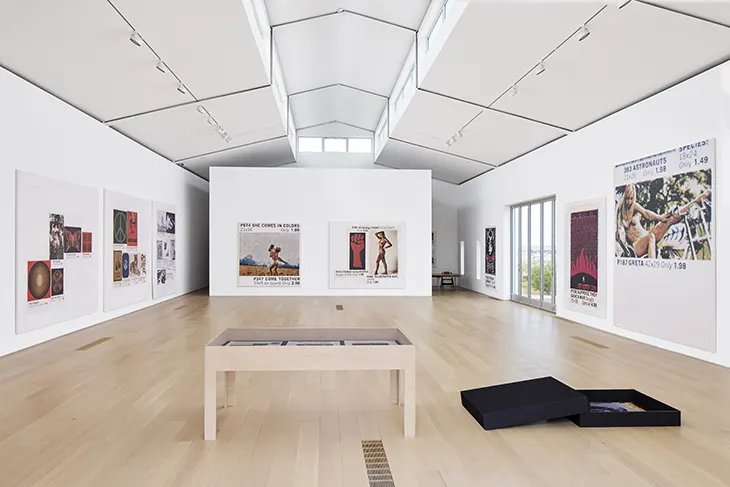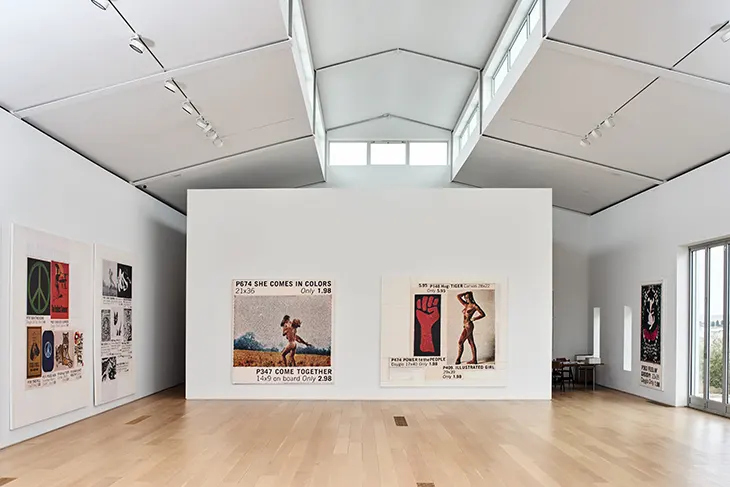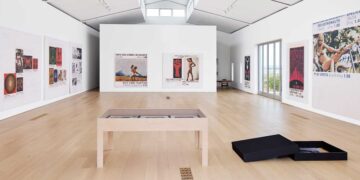
Hetzler | Marfa announces its latest summer presentation with Posters, a solo exhibition by Richard Prince that brings together works created between 2014 and 2024. As one of the leading figures of appropriation art, Prince continues his decades-long interrogation of mass media, advertising, and American counterculture, turning his lens this time toward the low-cost, high-impact visual language of mail-order posters.
ART
Installed in Marfa, Texas, known for its stronghold in minimalism and conceptualism, the exhibition is composed of large-scale canvases and paper works that draw from the back pages of mid-to-late 20th-century magazines. These often-overlooked advertisements for posters, typically sold via mail order, were staples of countercultural print media. Prince isolates, enlarges, and reframes them, transforming ephemeral catalog images into monumental works of art.
The selected imagery traces a cultural arc through political slogans, psychedelic visuals, modern art reproductions, and kitsch depictions of nude couples and domestic cats. Originally embedded in head-shop and underground magazine culture, these posters reflect both the revolutionary ambitions and the self-parodying contradictions of the late 1960s and early ’70s. Prince preserves these tensions, presenting them as both relic and reflection.

Far from nostalgic, the works invite critical distance. By taping off, blocking out, and magnifying these poster reproductions, Prince alters their scale and context, encouraging viewers to reengage with familiar imagery now stripped of its original framing. The result is a collection that feels both humorous and unsettling.
In true Prince fashion, the exhibition doesn’t curate a single message but instead invites dissonance. His seemingly arbitrary selection becomes the point, the randomness of cultural memory, the chaotic layering of ideology and design, the tension between visual protest and consumer impulse.
By bringing this body of work to Marfa, Prince highlights his continued commitment to interrogating how meaning circulates. As visual culture increasingly depends on rapid consumption, Posters slows the gaze, forcing viewers to consider what we’ve seen, what we’ve ignored, and how even the most disposable images can shape cultural consciousness.



















